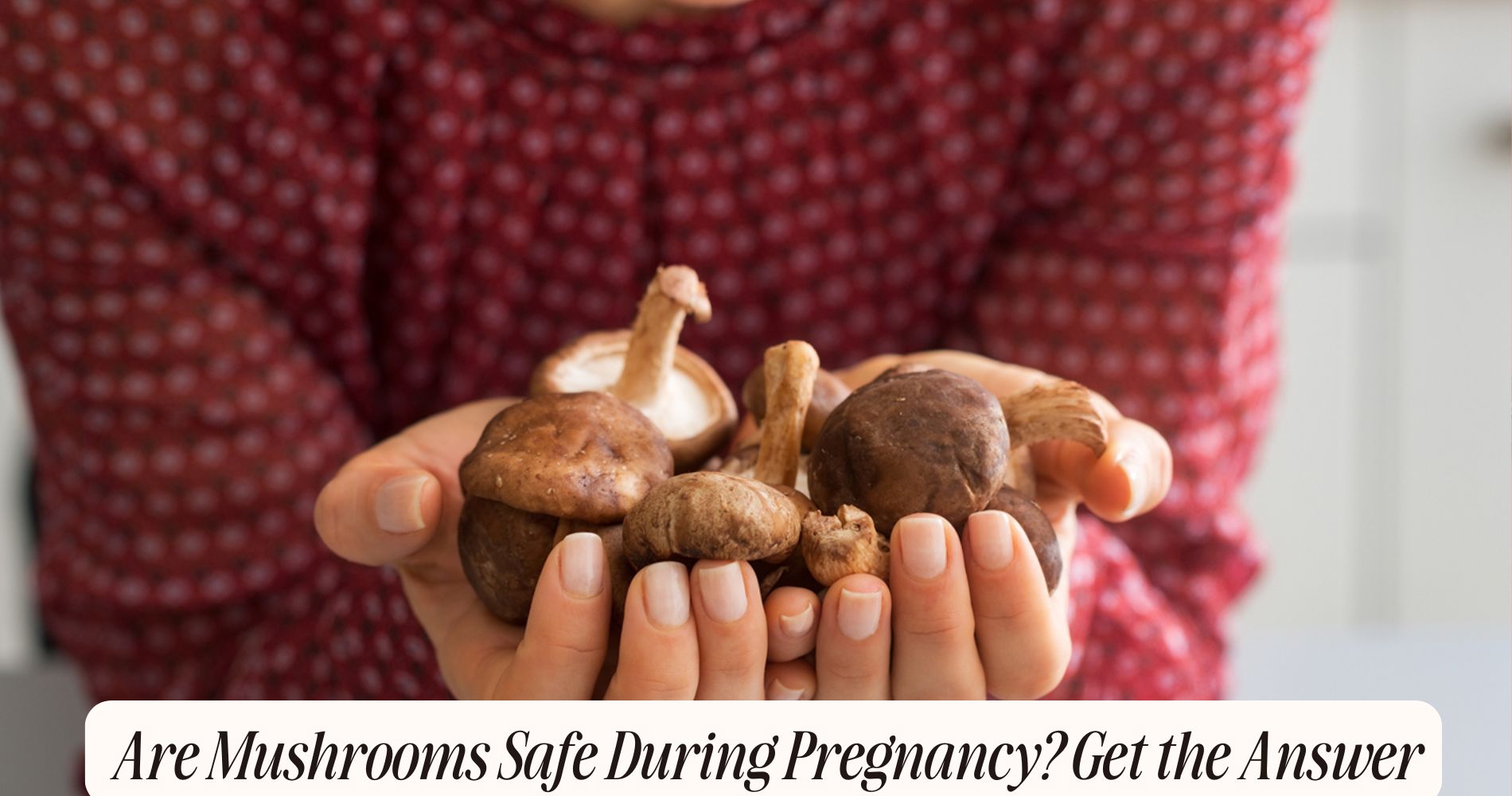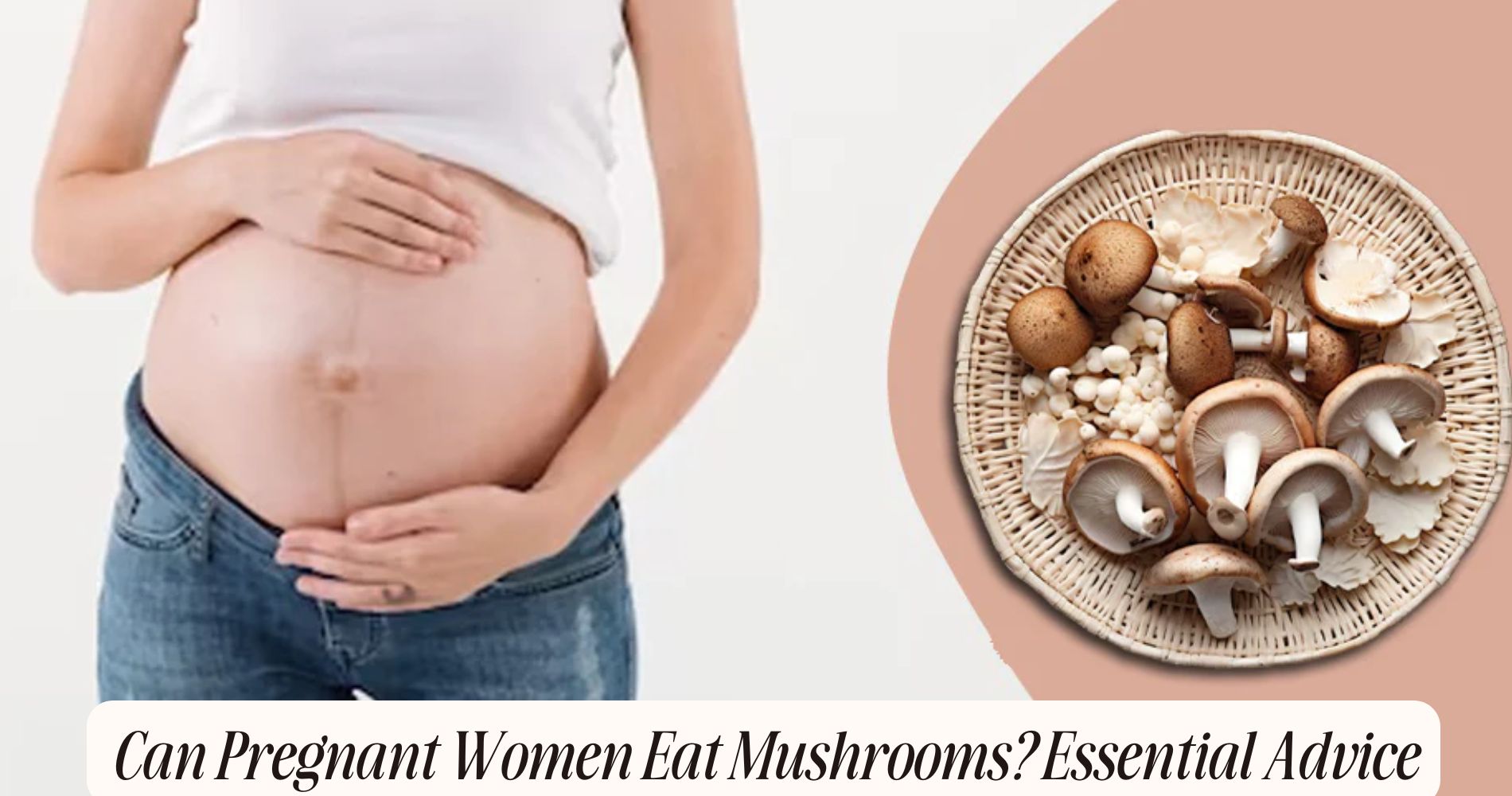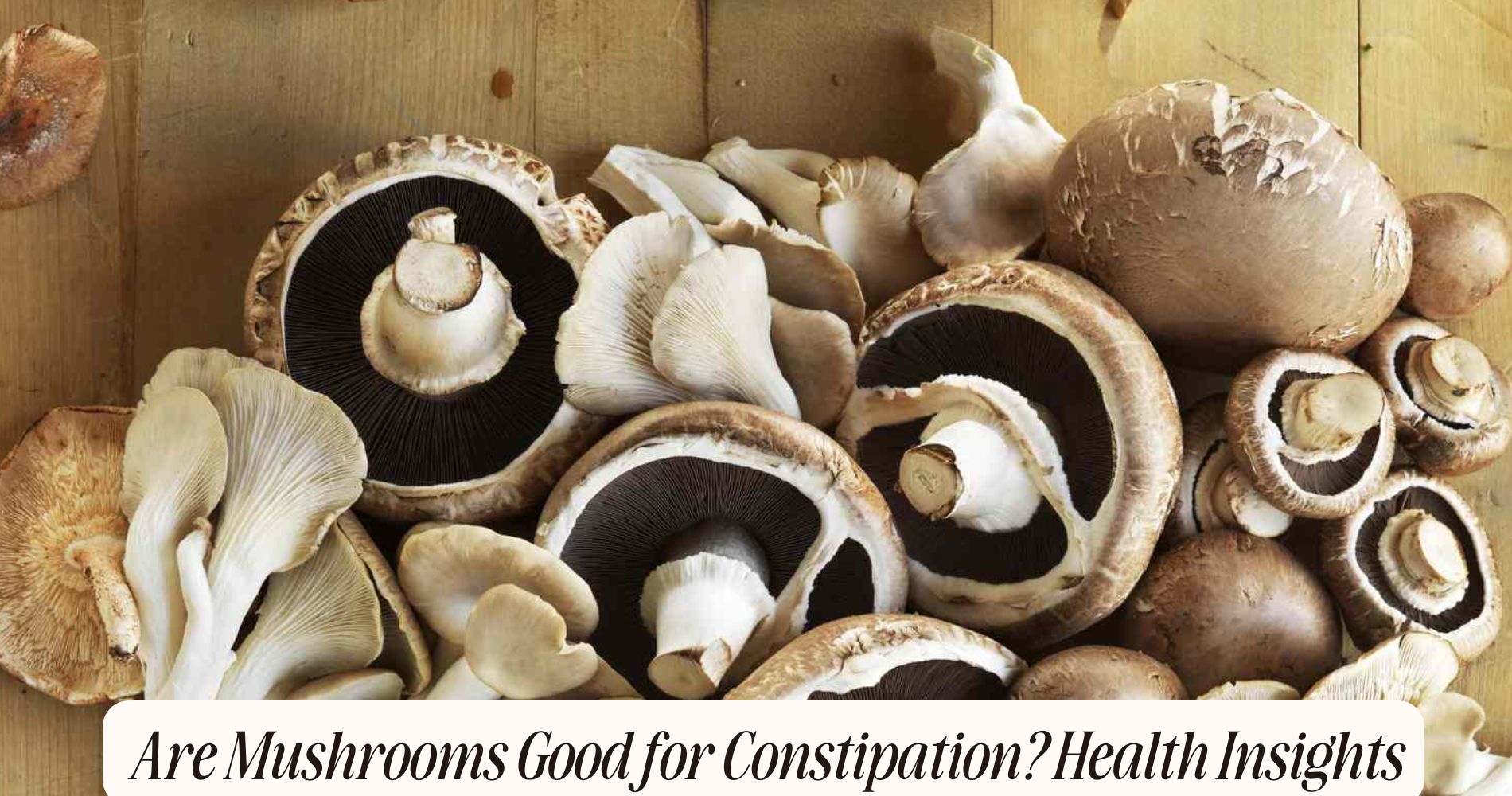
Are Mushrooms Safe During Pregnancy? Get the Answer
Are mushrooms safe during pregnancy? Mushrooms can be safe during pregnancy if you choose the right types and prepare them properly. Fresh, cooked varieties like button, shiitake, and cremini offer essential nutrients, including B vitamins and antioxidants. However, avoid wild mushrooms due to the risk of toxicity. Always wash and cook mushrooms thoroughly to eliminate harmful bacteria. It's also wise to consult your healthcare provider, especially if you have allergy concerns. Start with small servings to monitor your body's reaction. You'll find more insights on safe mushroom options and preparation methods that can support your health during this important time.
Nutritional Benefits of Mushrooms
Mushrooms are a powerhouse of nutrition, making them an excellent addition to your diet during pregnancy. Various mushroom varieties, such as shiitake, portobello, and button mushrooms, offer unique nutritional value that can benefit both you and your developing baby.
Rich in essential vitamins and minerals, mushrooms are particularly high in B vitamins, including riboflavin, niacin, and folate, which are essential for energy production and cell development.

Additionally, mushrooms are a good source of antioxidants, which help combat oxidative stress and support your immune system during pregnancy. They also contain important minerals like selenium, copper, and potassium, all of which play significant roles in maintaining your health and supporting fetal development.
Moreover, mushrooms are low in calories and fat, making them an ideal food choice if you're mindful of your weight. Their high fiber content aids digestion, which can be particularly beneficial as you navigate the common digestive issues during pregnancy.
Incorporating a variety of mushrooms into your meals not only enhances flavor but also boosts the overall nutritional profile of your diet, ensuring both you and your baby get the nutrients you need.
Common Types of Mushrooms
When it comes to choosing mushrooms during pregnancy, several common varieties stand out for their nutritional benefits and culinary versatility. Among the most popular edible varieties are button mushrooms, cremini, and shiitake. Each of these mushrooms belongs to different mushroom classifications, but they all offer unique flavors and health advantages.
Button mushrooms, the most widely consumed, are rich in B vitamins and antioxidants. They're perfect for salads, soups, or as a pizza topping.
Cremini mushrooms, often seen as a more flavorful cousin of button mushrooms, are also packed with nutrients, including potassium and selenium. They're great in stir-fries or roasted dishes.
Shiitake mushrooms are another excellent choice, known for their distinct umami flavor. They're high in copper and help support your immune system. You can add them to broths, sauces, or stir-fries.
Risks Associated With Mushrooms
While many mushrooms can provide valuable nutrients during pregnancy, it's important to recognize the potential risks associated with their consumption. One of the primary concerns is mushroom toxicity. Some wild mushrooms can be highly toxic and may cause severe health issues, including liver damage or even death.
It's essential to avoid foraging for mushrooms unless you're an expert, as misidentifying edible varieties can lead to dire consequences.

Even among the cultivated types, certain edible mushrooms can still pose risks if consumed in excess. For instance, some mushrooms contain compounds that may interfere with nutrient absorption or cause gastrointestinal upset. Additionally, pregnant women may experience heightened sensitivity to certain foods, leading to adverse reactions.
To minimize risks, focus on well-known, commercially available varieties like button, portobello, or shiitake mushrooms. Always verify they're fresh and properly stored.
If you're uncertain about a mushroom's safety, it's best to consult with your healthcare provider. By being cautious and informed, you can enjoy the benefits of mushrooms while keeping both you and your baby safe during this essential time.
Cooking Methods for Safety
To guarantee the safety of mushrooms during pregnancy, it's crucial to prepare them properly. Start with effective cleaning methods. Rinse mushrooms under cold running water to remove dirt and any potential contaminants. You can use a soft brush or cloth to scrub the surface, especially for varieties with crevices.
Next, focus on cooking temperatures. Cooking mushrooms thoroughly is important to eliminate harmful bacteria and toxins. Aim for an internal temperature of at least 165°F (74°C). Sautéing, roasting, or steaming are excellent methods to guarantee they reach this safe temperature. Avoid consuming raw or undercooked mushrooms, as they may harbor pathogens that could pose risks during pregnancy.
Additionally, consider the source of your mushrooms. Purchase them from reputable suppliers, and check for any signs of spoilage before use.
Recommended Mushroom Varieties
When you're considering mushrooms during pregnancy, it's vital to focus on safe varieties that offer valuable nutritional benefits.
Certain mushrooms, like shiitake and button, can provide essential vitamins and minerals while being safe to consume when properly cooked.
Let's explore which types are best for you and how to prepare them safely.
Nutritional Benefits of Mushrooms
Mushrooms offer a wealth of nutritional benefits that can be particularly advantageous during pregnancy. These versatile fungi are packed with essential vitamins and minerals that support both you and your baby's health. For instance, certain mushroom varieties, like shiitake and maitake, are rich in B vitamins, which play a vital role in energy production and brain development.
Additionally, mushrooms are a great source of vitamin D, important for calcium absorption and bone health. Including mushrooms in your diet helps boost your immune system, thanks to their high levels of antioxidants and polysaccharides.
Another significant aspect is their low-calorie count combined with high fiber content, which can aid digestion and help you maintain a healthy weight during pregnancy. The nutritional content of mushrooms also includes minerals like selenium, which protects your cells from damage and supports thyroid function.
When considering which mushroom varieties to include in your meals, focus on those that offer these key nutrients. Incorporating various mushrooms can enhance your meals while ensuring you get the diverse nutrients you need for a healthy pregnancy.
Safe Varieties to Consume
Which mushroom varieties are safe to consume during pregnancy? When you're expecting, it's crucial to choose mushrooms that are both nutritious and safe. Commonly recommended mushroom varieties include cremini, shiitake, and white button mushrooms.

These varieties are widely available and packed with essential nutrients like vitamin D, B vitamins, and antioxidants. Cremini mushrooms, for instance, not only enhance the flavor of your dishes but also provide a good source of iron, which is important during pregnancy.
Shiitake mushrooms, known for their savory taste, are rich in polysaccharides that can support your immune system. White button mushrooms are versatile and can easily be added to various meals, making them a great option for different dietary preferences.
When selecting mushrooms, always opt for fresh, organic varieties when possible to minimize pesticide exposure. Additionally, avoid any wild mushrooms, as some can be toxic and harmful.
Cooking Methods for Safety
Ensuring your family's safety while enjoying mushrooms during pregnancy involves using proper cooking methods. It's vital to choose the right cooking techniques to eliminate any potential risks. Cooking mushrooms thoroughly kills harmful bacteria and reduces the risk of exposure to toxins, making them safer for you and your baby.
When preparing mushrooms, opt for methods like sautéing, boiling, or roasting. Sautéing in a bit of olive oil enhances flavor while ensuring even cooking, which is essential for safe preparation. Boiling can also be effective, especially for certain varieties like shiitake, as it helps eliminate any residual contaminants.
Avoid consuming raw or undercooked mushrooms, as they may harbor harmful microorganisms. Always wash mushrooms thoroughly to remove dirt and pesticides before cooking.
Stick to safe varieties like button, cremini, and shiitake, which aren't only delicious but also packed with nutrients.
Signs of Mushroom Allergies
If you're considering mushrooms during pregnancy, it's vital to be aware of potential allergies.
Common symptoms include itching, hives, or gastrointestinal issues, which can indicate an allergic reaction.
Understanding risk factors and getting proper diagnosis and testing can help you make informed choices for your health and your baby's well-being.
Common Allergy Symptoms
While many people enjoy mushrooms for their culinary benefits, some may experience allergic reactions that can lead to uncomfortable symptoms. If you suspect a mushroom allergy, it's important to recognize the signs. Common symptoms include hives, itching, or skin rashes, which may occur within minutes of consumption.
You might also experience gastrointestinal issues like nausea, vomiting, or diarrhea. In more severe cases, allergic reactions can lead to respiratory problems, such as wheezing or difficulty breathing.
Identifying allergy triggers is essential. If you notice any of these symptoms after eating mushrooms, consider consulting with a healthcare professional. They may recommend allergy testing to determine if mushrooms are indeed the source of your reactions.
This process can help you rule out other potential allergens and provide clarity on what to avoid in your diet.
Risk Factors Involved
Mushroom allergies can affect anyone, but certain risk factors may increase your susceptibility. If you have a history of allergies—especially to mold or other fungi—you might be more prone to developing a mushroom allergy.
Additionally, people with asthma or other respiratory conditions may experience heightened sensitivity to mushrooms, given their potential to trigger allergic reactions.
Environmental concerns play a role too; if you live in an area with high humidity or dampness, you may be at a greater risk for exposure to mushrooms that could contain allergens.
Be cautious with wild mushrooms, as they can pose risks of mushroom toxicity, leading to adverse health effects.
Pregnant women should also be especially vigilant, as hormonal changes can affect immune responses, potentially increasing your chances of an allergic reaction.
If you're introducing mushrooms into your diet during pregnancy, it's wise to start with small amounts and observe how your body reacts.
Always consult your healthcare provider if you experience any symptoms of an allergy.
Diagnosis and Testing
When experiencing symptoms that may indicate a mushroom allergy, it's imperative to seek a proper diagnosis to guarantee your health and the well-being of your baby during pregnancy. Common signs of an allergy can include skin reactions like hives, respiratory issues, or even gastrointestinal discomfort after consuming mushrooms. Recognizing these symptoms early is fundamental for your pregnancy safety.
Your healthcare provider may recommend allergy testing, which could involve skin prick tests or blood tests to assess your body's response to mushroom proteins. These tests help determine if you're dealing with an allergy or simply mushroom toxicity due to consuming wild or improperly prepared mushrooms.

If you suspect an allergy, it's important to document your symptoms and any mushroom varieties you've ingested. This information can assist your healthcare team in making an accurate diagnosis.
Additionally, avoiding all mushrooms during pregnancy, especially if you're unsure about your allergy status, can help mitigate risks for both you and your baby. Ensuring you have clarity about what's safe to eat can provide peace of mind during this critical time.
Always prioritize your health and consult with your healthcare provider regarding any concerns.
Consulting Healthcare Professionals
Consulting healthcare professionals is essential for guaranteeing a healthy pregnancy, especially when considering dietary choices like mushrooms. Your healthcare provider can offer personalized healthcare advice based on your medical history, dietary restrictions, and overall health.
They'll help you navigate the complexities of nutrition during pregnancy, guaranteeing you make informed choices.
Mushrooms can be a nutritious addition to your diet, but not all varieties are safe. Some mushrooms can be toxic or may cause allergic reactions. By discussing your interest in incorporating mushrooms with your healthcare professional, you'll receive valuable insights into which types may be safe and beneficial for you.
Additionally, your doctor or dietitian can provide professional recommendations on how to prepare and consume mushrooms safely. They may suggest cooking methods that minimize potential risks and enhance nutrient absorption.
Open communication about your dietary preferences guarantees that you receive tailored guidance that aligns with your pregnancy needs.
Tips for Safe Consumption
Incorporating mushrooms into your pregnancy diet can be rewarding, but it's important to guarantee you're consuming them safely. Start by choosing mushrooms that are organically sourced. Organic mushrooms are less likely to contain harmful pesticides and chemicals, making them a healthier option for you and your developing baby.
Always wash them thoroughly to remove any dirt or residues.
Next, practice portion control. While mushrooms offer numerous health benefits, moderation is key. Stick to small servings, such as half a cup cooked, to avoid any potential digestive issues.
It's also wise to cook mushrooms before consuming them, as cooking helps eliminate any harmful bacteria and enhances their nutritional value.
Stay away from wild mushrooms unless you can identify them with certainty, as some can be toxic. If you're trying a new variety, consider introducing it in small amounts to monitor any reactions.
Support Your Wellness During Pregnancy with SUPER MUSHROOM GUMMIES
Expecting moms can easily enjoy the benefits of mushrooms with SUPER MUSHROOM GUMMIES from Well Gummies. Each gum chew is packed with 10 functional mushrooms, to fuel your brain, energize your body, and boost your immune system—all in a convenient, delicious wild berry flavor. These vegan gummies provide calmer energy and sharper focus, without jitters or crashes, making them a perfect addition to your wellness routine during pregnancy. Enjoy the taste of your favorite candy while supporting your health and balance throughout your pregnancy!
Frequently Asked Questions
Can Pregnant Women Eat Raw Mushrooms?
You should avoid raw mushrooms during pregnancy. Cooking methods like sautéing or steaming can eliminate harmful bacteria. Certain mushroom varieties are safer than others, so always choose well-cooked options to guarantee you and your baby stay healthy.
Are Mushroom Supplements Safe During Pregnancy?
When considering mushroom supplements during pregnancy, it's essential to know the types you're taking. Some offer nutritional benefits, but not all are safe. Always consult your healthcare provider to verify they're appropriate for you.
How Do I Identify Edible Mushrooms?
To identify edible mushrooms, familiarize yourself with common mushroom types and use field guides. When mushroom foraging, always double-check with experts, as some mushrooms can be toxic. Your safety's vital, so don't take risks.
Can Mushrooms Affect Fetal Development?
Mushrooms can affect fetal development due to potential fungal toxins. While they offer excellent mushroom nutrition, you should always choose safe, well-known varieties. Consult your healthcare provider for guidance to guarantee your and your baby's safety.
What Are Signs of Mushroom Poisoning?
If you suspect mushroom poisoning, look for symptoms like nausea, vomiting, abdominal pain, and confusion. Common poisonous mushrooms, such as the Amanita species, can cause severe toxicity, so seeking medical help immediately is vital.
Conclusion
In conclusion, mushrooms can be a nutritious addition to your diet during pregnancy, but it's essential to choose safe varieties and prepare them properly. Stick to well-known types like button or shiitake, and always cook them thoroughly to eliminate potential risks. If you have any concerns or experience allergic reactions, consult your healthcare provider. By being mindful of your choices, you can enjoy the benefits of mushrooms while keeping your pregnancy safe and healthy.




